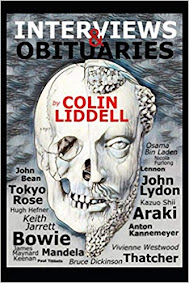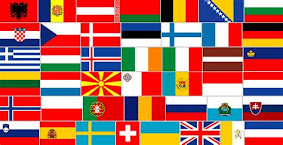Note: The following excerpt is taken from my longer piece, entitled The N*****s of the Earth, which chronicles my recent travels among the embattled Afrikaners in post-Apartheid, ANC-ruled South Africa. The N*****s of the Earth will appear in the first issue of Radix, the new print journal funded by the National Policy Institute.
by Andy Nowicki
This passage concerns my visit to the town of Orania, a specifically Afrikaner enclave and mini-ethnostate in the Northern Cape that has garnered worldwide attention. While there, I speak with one of the community’s many interesting inhabitants, a German convert to Boer-dom named Sebastiaan Biehl.
There is much gloom and doom among Afrikaners today regarding their prospects for the future, but the architects of the Orania project seem to grasp instinctively that a message of grim, militant pessimism doesn’t sell well. The Orania campaign, thus, is to accentuate the positive. Posters around the town sing of Orania as a “dream come true.” The most prominent promotional photograph depicts five pretty, long-legged teenage girls, each clad in orange, leaping joyously into the air, alongside the perky proclamation “Welcome To Orania!” The picture communicates youthfulness, vitality, innocence, even a kind of subtle (if wholesome) sex appeal. It causes the viewer to consider the town, not as a bitter refuge-spot for dead-enders, but as a fun place, where one can live free from care and dwell happily with one’s brethren, and maybe meet a potential wife or husband.
And the pitch seems to be working: many do come to Orania, if only to stay temporarily. In addition to its export business of crops and commodities, around 30 percent of Orania’s draw comes from the tourist industry. There is a fancy spa and a chalet-style motel, and an upscale restaurant overlooking the Orange River, along with a camping site. Guests commonly spend a night or two in the middle of a trip to or from Cape Town to relax and recharge. Thus, news of the existence and mission of Orania continues to spread via word of mouth.
The overwhelming majority of the people I meet in Orania prove to be welcoming and warmly accommodating. The fact that I’m an outsider (“uitlander”), that I don’t speak the language, and that I’m there in the capacity of a journalist would all seem to be strikes against me. Orania has been overrun with newspaper and magazine writers over the course of its 20-year existence, and needless to say, most reporters have been of the “smirking liberal” variety—the type who are friendly and sympathetic to your face, take advantage of your sincerely-offered hospitality, then proceed to write cruelly nasty articles about you. Despite the fact that the Oranians have no real reason to trust me, most are open with their thoughts, and only a rare specimen here or there seems in any way suspicious of my motives.
Perhaps the most interesting person I speak with during my stay in Orania is a shy, retiring, rigorously intellectual 36-year old man named Sebastiaan Biehl. One would normally expect a man of his cerebral bent to be found in academia; in Orania, however, he works as a real estate agent. Biehl is an “uitlander” who, one might say, has gone native. He is from Germany, but he has found that his calling, to dwell among the Afrikaners—one might even say he is an Afrikaner convert of sorts. When I ask to confirm that he is German, he answers, “Yes, I was, originally.” But he now considers himself a thoroughly naturalized Afrikaner; he speaks Afrikaans as a first language, and has even published a novel, entitled Beslissing In Die Karoo, in Afrikaans.
Biehl’s journey began two decades ago, when he began to correspond with a pen pal who lived on a farm in the Free State province. When he visited in the summer of 1992, he said, it had the effect of a “revelation.” Indeed, after working on his friend’s farm for a couple of months, he had the sensation of finally having found his place in the world.
“I felt like I had come home,” he recalls.
As a solitary, thoughtful lad, Biehl had long felt alienated from contemporary European mores. The erosion of faith in an increasingly secularized society had led, in his observation, to a culture that had grown “cold and immoral,” rife with social ills.
Among the Afrikaners, Biehl says, he discovered “a deep-seated conservatism of the hearty sort,” and at the same time he experienced “a rebirth or a rejuvenation of faith.”
When he returned to the country of his birth, he came to perceive ever more clearly that he didn’t belong there.
“I saw Germany with new eyes,” he recalls. “I found it superficial and materialistic and hectic and… godless. I couldn’t wait to get back to South Africa again. There was a feeling of freedom there, of wide open spaces. It was like stepping back in time.”
He went to college at South Africa’s Free State University in 1996, earning a degree in political science with a focus on history and politics. Along the way, he changed his first name, adding an additional “a” to his given name of “Sebastian,” in the Afrikaner style. After college, Biehl settled in Bloemfontein, and then in 2005, after much soul searching, he opted to take up residence in Orania. He took a job as a realtor, though it had little relevance to his collegiate training, because he wished to choose a profession in which he could help his adopted hometown to grow and expand.
Biehl says he has absolutely no regrets about his radical lifestyle makeover. Though certain traits still mark him as an “uitlander”—he is, for example, a Lutheran in a community of Calvinists—he couldn’t be happier than to dwell exactly where he does.
“Orania will always be where my roots are,” he says. “You have to pay a price if you want to be free.”
There is much gloom and doom among Afrikaners today regarding their prospects for the future, but the architects of the Orania project seem to grasp instinctively that a message of grim, militant pessimism doesn’t sell well. The Orania campaign, thus, is to accentuate the positive. Posters around the town sing of Orania as a “dream come true.” The most prominent promotional photograph depicts five pretty, long-legged teenage girls, each clad in orange, leaping joyously into the air, alongside the perky proclamation “Welcome To Orania!” The picture communicates youthfulness, vitality, innocence, even a kind of subtle (if wholesome) sex appeal. It causes the viewer to consider the town, not as a bitter refuge-spot for dead-enders, but as a fun place, where one can live free from care and dwell happily with one’s brethren, and maybe meet a potential wife or husband.
And the pitch seems to be working: many do come to Orania, if only to stay temporarily. In addition to its export business of crops and commodities, around 30 percent of Orania’s draw comes from the tourist industry. There is a fancy spa and a chalet-style motel, and an upscale restaurant overlooking the Orange River, along with a camping site. Guests commonly spend a night or two in the middle of a trip to or from Cape Town to relax and recharge. Thus, news of the existence and mission of Orania continues to spread via word of mouth.
The overwhelming majority of the people I meet in Orania prove to be welcoming and warmly accommodating. The fact that I’m an outsider (“uitlander”), that I don’t speak the language, and that I’m there in the capacity of a journalist would all seem to be strikes against me. Orania has been overrun with newspaper and magazine writers over the course of its 20-year existence, and needless to say, most reporters have been of the “smirking liberal” variety—the type who are friendly and sympathetic to your face, take advantage of your sincerely-offered hospitality, then proceed to write cruelly nasty articles about you. Despite the fact that the Oranians have no real reason to trust me, most are open with their thoughts, and only a rare specimen here or there seems in any way suspicious of my motives.
*******************************
Perhaps the most interesting person I speak with during my stay in Orania is a shy, retiring, rigorously intellectual 36-year old man named Sebastiaan Biehl. One would normally expect a man of his cerebral bent to be found in academia; in Orania, however, he works as a real estate agent. Biehl is an “uitlander” who, one might say, has gone native. He is from Germany, but he has found that his calling, to dwell among the Afrikaners—one might even say he is an Afrikaner convert of sorts. When I ask to confirm that he is German, he answers, “Yes, I was, originally.” But he now considers himself a thoroughly naturalized Afrikaner; he speaks Afrikaans as a first language, and has even published a novel, entitled Beslissing In Die Karoo, in Afrikaans.
Biehl’s journey began two decades ago, when he began to correspond with a pen pal who lived on a farm in the Free State province. When he visited in the summer of 1992, he said, it had the effect of a “revelation.” Indeed, after working on his friend’s farm for a couple of months, he had the sensation of finally having found his place in the world.
“I felt like I had come home,” he recalls.
As a solitary, thoughtful lad, Biehl had long felt alienated from contemporary European mores. The erosion of faith in an increasingly secularized society had led, in his observation, to a culture that had grown “cold and immoral,” rife with social ills.
Among the Afrikaners, Biehl says, he discovered “a deep-seated conservatism of the hearty sort,” and at the same time he experienced “a rebirth or a rejuvenation of faith.”
When he returned to the country of his birth, he came to perceive ever more clearly that he didn’t belong there.
“I saw Germany with new eyes,” he recalls. “I found it superficial and materialistic and hectic and… godless. I couldn’t wait to get back to South Africa again. There was a feeling of freedom there, of wide open spaces. It was like stepping back in time.”
Biehl says he has absolutely no regrets about his radical lifestyle makeover. Though certain traits still mark him as an “uitlander”—he is, for example, a Lutheran in a community of Calvinists—he couldn’t be happier than to dwell exactly where he does.
“Orania will always be where my roots are,” he says. “You have to pay a price if you want to be free.”
































No comments:
Post a Comment
Your comment will appear after it has been checked for spam, trolling, and hate speech.